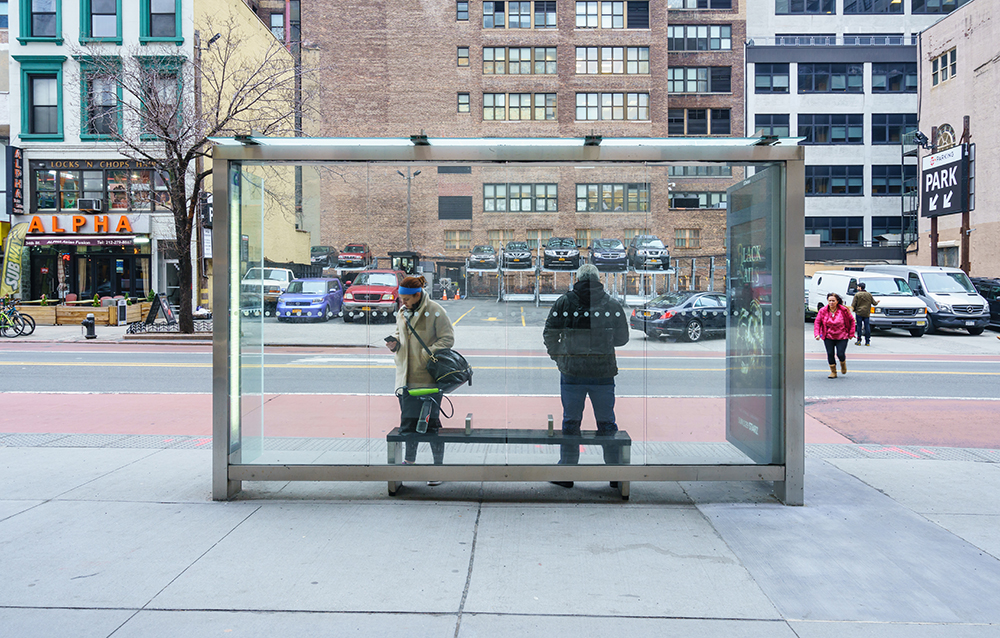MTA fails to provide customers with real-time information regarding delays affecting individual express buses along a route and lacks sufficient indicators for measuring express buses’ performance
MTA has set a modest goal of under 60% for on-time performance, expects a significant percentage of its buses will not operate on time

New York City Comptroller Scott M. Stringer released an audit revealing MTA express bus on-time performance continues to lag. The audit found that the agency has not set goals for a majority of indicators the MTA identified to measure express buses’ performance and where goals have been set, indicators are of limited value for assessing performance. MTA has set a modest goal of just under 60% for on-time performance; from that target the agency expects a significant percentage of its buses will not operate on time. Comptroller Stringer’s audit follows a previous 2015 report that found 31 percent of sampled express buses were not on time based on the MTA’s criteria.
“Thousands of New Yorkers rely on buses every day to commute to work, attend classes, see a doctor, and take their children to day care,” said Comptroller Stringer. “Riders who rely on and pay a premium price for express bus service shouldn’t be left waiting, uninformed of delays, or stranded at bus stops. As New York City continues to work toward a strong post-pandemic recovery, I urge the MTA to start putting our recommendations into practice immediately because a 21st century city deserves a 21st century transit system–fast, reliable, and responsive.”
Comptroller Stringer’s audit uncovered the following:
The MTA has identified nine performance indicators, including (but not limited to) on-time performance and travel time, by which it measures express bus performance. However, the way the MTA has implemented these performance indicators appears to reduce their utility:
- For six of the nine performance indicators, the MTA has not set goals for measuring its express buses’ actual performance. Without such goals, it is unclear how the MTA can use those performance indicators to assess its performance.
- For two of the three indicators for which goals have been set, the indicators appear to be of limited value for assessing express bus performance.
- For on-time performance, the MTA has set a very modest goal of just under 60 percent. From that target, it appears that the agency expects that a significant percentage of its buses will not operate on time in accordance with its own schedules.
Additionally, although the MTA can identify those express bus routes that are low-performing, such as on-time performance as low as 23 percent, the agency stated during the audit that it had not received any recommendations from its Road Operations unit for schedule or route modifications for any express bus routes during the review period.
The audit also found that the MTA does not have an adequate process for providing customers with real-time information regarding delays affecting particular buses along a bus route. When a delay impacts a particular scheduled bus, the MTA generally notifies customers only if the resulting service gap is (1) twice the scheduled interval between buses or (2) more than an hour. This policy of leaving customers uninformed of delays of up to one hour creates a significant risk of seriously inconveniencing customers.
To address these issues, Comptroller Stringer’s recommendations include:
- The MTA should establish goals for all publicly reported performance indicators so that Road Operations personnel gain a clear understanding of management’s expectations.
- For its on-time performance target, the MTA should consider increasing the percentage of express buses that it expects to operate on schedule.
- The MTA should ensure that Road Operations: (a) identifies possible route and schedule modifications for express buses that do not meet performance goals; and (b) recommends appropriate modifications to the MTA’s Operations Planning department.
- The MTA should provide customers with real-time notifications of service delays impacting individual bus trips and measure its performance in doing so.
To read Comptroller Stringer’s Audit Report on the Metropolitan Transportation Authority’s Monitoring of Its Express Bus Services, click here.
No comments:
Post a Comment